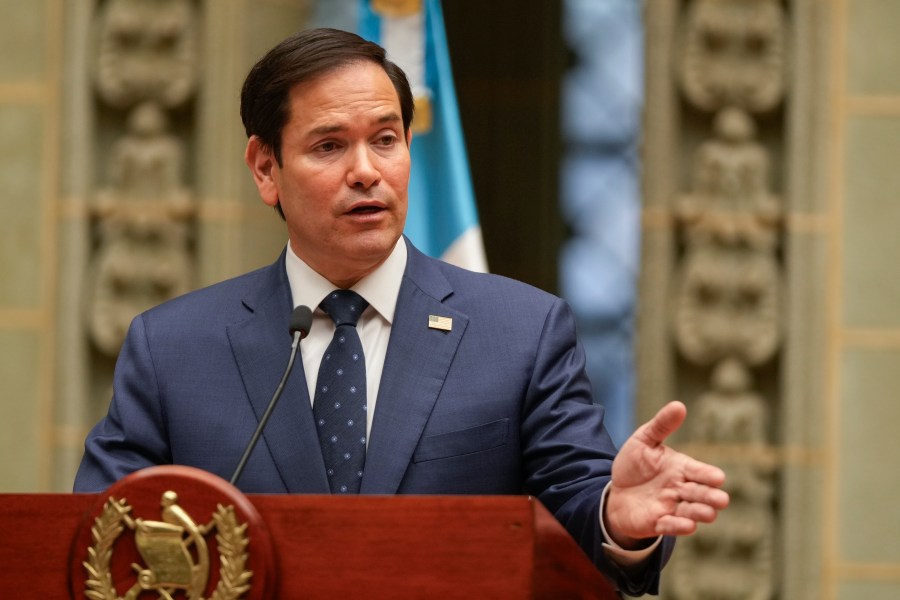A North County charter school network that serves more than 5,300 students scrapped a 4-year-old policy that required privacy for transgender and gender non-conforming students and replaced it with one that would allow, and in some cases require, school staff to inform parents of changes to a student’s gender identity or expression without the student’s consent.
Classical’s old policy said school staff should not disclose information that could reveal a student’s gender identity to others without the student’s consent or unless required by law. “Transgender and gender nonconforming students have the right to discuss and express their gender identity and express openly and to decide when, with whom, and how much to share private information,” the old policy stated.
The new policy requires that any minor student’s parents automatically be notified if their child requests a change in their official or unofficial school records, which could include a name or pronoun change.
In other cases, the new policy also says that when any student tells or asks school staff anything “that may bear on the (student’s) health, safety or well-being,” staff should decide what to tell parents.
“We will trust the judgment of a teacher, counselor or administrator to know what to do, what advice to share, and will notify the student’s parents/guardians to involve them in the situation,” the new policy says.
If the school decides there is reason to believe telling the parent might harm the student, administrators will write a plan for communicating to the parent that protects the student’s interests and “is sensitive to any concerns regarding disclosure,” the policy says.
The school board of Classical Academies made the policy changes last month after an Escondido attorney, Dean Broyles, threatened legal action over its old policy, Classical Academies CEO Cameron Curry said in an email.
Broyles’ law practice has focused on religious rights and is affiliated with the Alliance Defending Freedom, according to his website — the prominent conservative Christian legal organization that overturned Roe v. Wade and has fought laws intended to bar discrimination based on sexual orientation or gender identity. He is also part of the Coalition for Parental Rights, an organization pushing for parental notification policies statewide.
When contacted by the San Diego Union-Tribune, Broyles said he thinks Classical’s old policy violated parents’ rights to direct the care of their children, which he argues are protected under the 14th Amendment, as well as school staff’s First Amendment rights.
“Indeed, all public-school districts that choose to continue to lie to parents or conceal important information from them about the health, safety and welfare of children should face the threat of litigation for violating civil rights in a way that results in harmed students, harmed parents and harmed teachers,” Broyles said in an email.
Broyles pointed to a federal judge’s ruling in September that temporarily blocked Escondido Union School District from enforcing a similar student privacy policy as a legal challenge to it continues to be litigated.
After hearing from Broyles and reviewing the Escondido ruling, Classical decided its policy was very similar to Escondido’s and moved to change it, Curry said.
The old policy, which the Classical board adopted in 2019 based on guidance from the state department of education, described not only a right to privacy for transgender students but other protections, including recognizing the right to dress consistent with their gender expression and creating school gender support plans that, for example, include use of preferred names and new pronouns. The old policy said school staff should encourage students to involve their parents.
Curry said just because the board repealed that policy doesn’t mean Classical Academies won’t continue to adhere to state law. He said the new policy does not prohibit gender support plans or use of preferred names and pronouns.
The state department of education and attorney general have said that disclosing a student identifies as transgender without the student’s consent could violate California’s anti-discrimination law because it can increase the student’s vulnerability to harassment.
The state sued the Chino Valley Unified School District in August over its new policy that required school staff to notify parents if their student identifies as transgender. Last month a judge temporarily blocked the policy, saying it discriminates against students based on their gender identity.
Curry said that unlike Chino Valley’s policy, Classical’s does not discuss notification specifically regarding gender identity. “Our policy simply requires contact with parents when any student has an issue that is threatening their health, safety or wellbeing,” Curry wrote.
LGBTQ advocates have said that notifying parents that their child has asked to be called by a different name or pronouns at school without the student’s consent can endanger the student if their family is not supportive of their identity.
Most LGBTQ youth reported in a recent national survey by the Trevor Project, a crisis support organization for LGBTQ youth, that they have not found their families to be LGBTQ-affirming; about 38 percent said they did.
Even if a student’s family is supportive, it should be up to the student to decide when and how to come out to their family, considering how personal and emotional a decision it is, said Max Disposti, executive director of the North County LGBTQ Center.
“The journey of disclosure, of coming out, is really up to the individual when they’re emotionally ready to do so,” Disposti said.
The North County LGBTQ Center, along with four other local LGBTQ-supporting organizations, have denounced Classical’s new rules as a “forced outing” policy that is ambiguous and open to interpretation.
They said they want Classical to reinstate its former policy and want the attorney general to consider taking action on Classical’s charter status.









